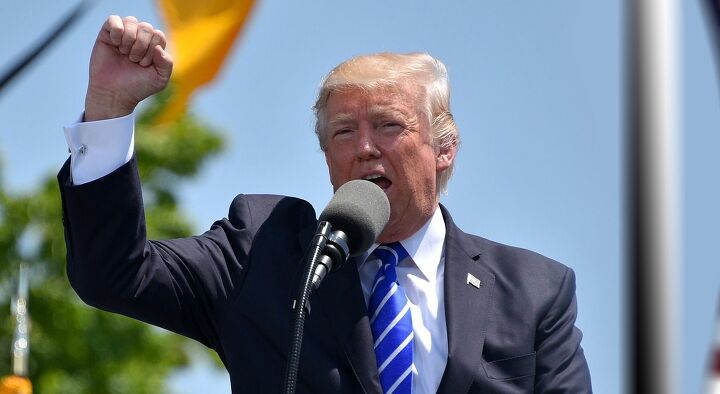
Donald Trump announced a new economic proposal just two weeks before the upcoming election, aimed at winning over voters—particularly those in the automotive and manufacturing sectors.
During a rally in North Carolina, Trump pledged to make interest on car loans fully tax-deductible, but with a key caveat: the cars must be built in the United States.
Reuters reports this proposal is part of Trump's broader strategy to appeal to autoworkers and discourage the influx of Chinese-made vehicles into the U.S. market. By tying the tax deduction to domestically produced vehicles, Trump aims to boost American manufacturing, a major focus of his economic policy.
On the surface, this sounds like a big win for everyone who has a car loan. But as with anything tax-related, the details are where things get tricky, and not everyone would come out ahead.

The idea, similar to the existing mortgage interest deduction, would allow car owners to write off the interest they pay on their auto loans. However, as with the mortgage interest deduction, the benefits of this plan are expected to disproportionately favor wealthier individuals.
This is because only taxpayers who itemize deductions, a small portion of the overall tax-paying population, would be able to take advantage of it. Experts point out that most lower-income taxpayers, who tend to claim the standard deduction, wouldn't benefit from the policy. Furthermore, wealthier households would see a larger tax benefit because the value of the deduction scales with income.
Auto loan interest currently accounts for a significant portion of consumer debt in the U.S., with Americans owing over $1.63 trillion in auto loans. Trump’s proposal would effectively let car buyers write off interest payments on their vehicle loans, potentially saving them hundreds of dollars a year.
The proposal, while popular among some voters, faces significant hurdles. Any changes to the tax code would require Congressional approval, and CNBC suggests it could cost the federal government around $5 billion annually in lost revenue.
Become a TTAC insider. Get the latest news, features, TTAC takes, and everything else that gets to the truth about cars first by subscribing to our newsletter.
Source: The Truth About Cars

